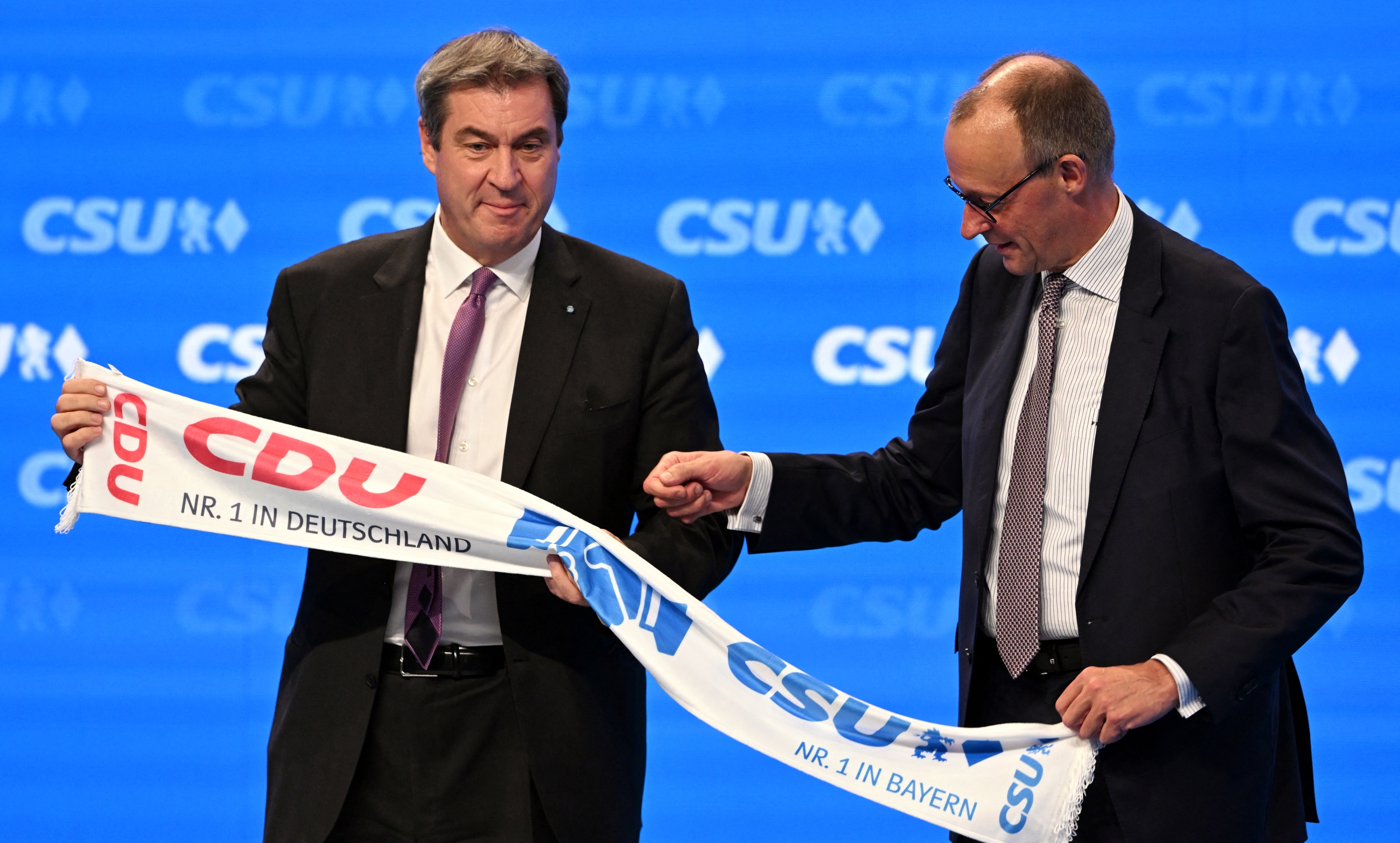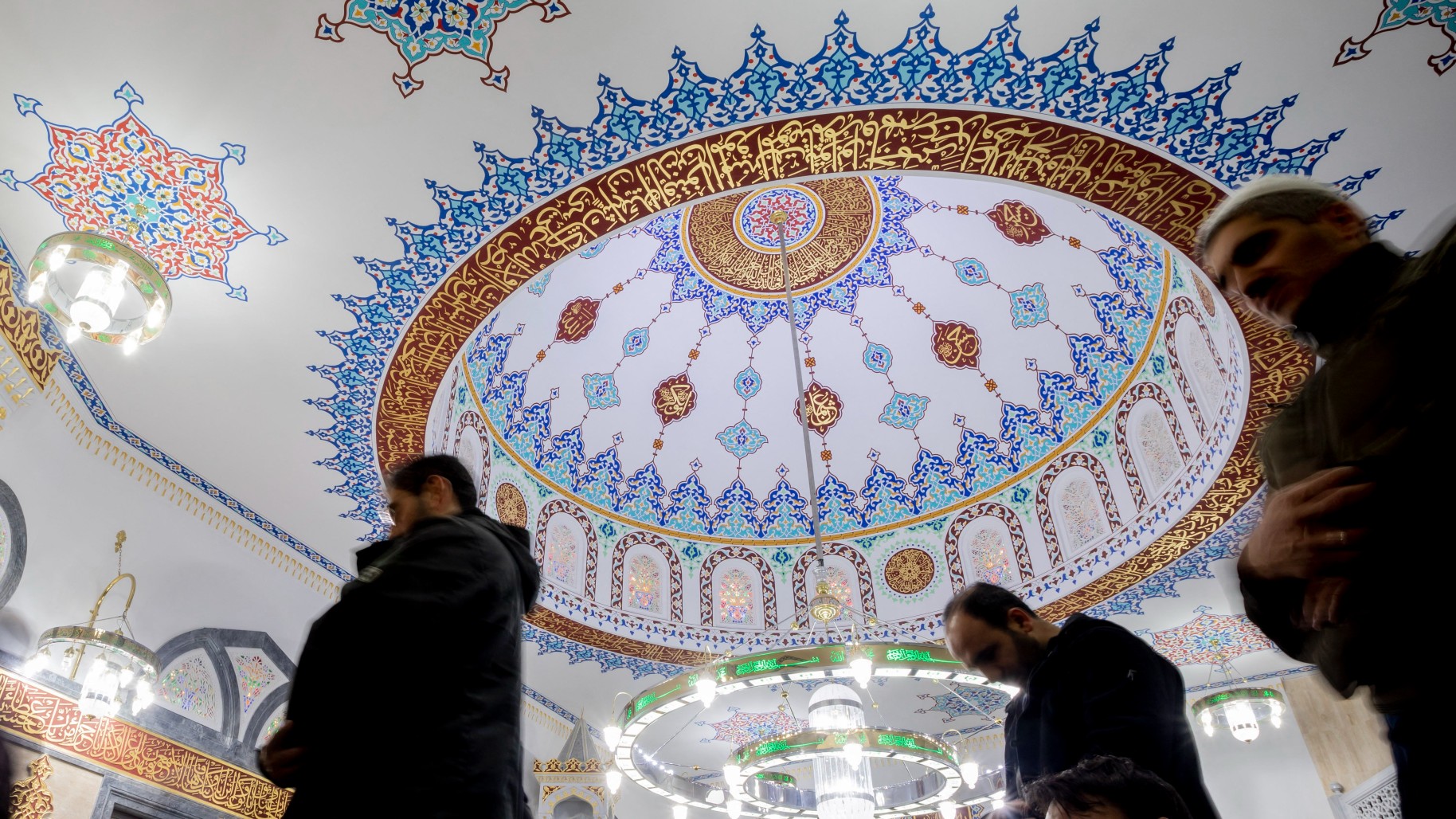How German conservatives are waging a crusade against Muslim civil society

It was one of the latest initiatives of the German conservatives in the midst of the election campaign in 2021: a crusade against organised Muslims in the name of fighting the spectre of "political Islamism".
After losing the election and withdrawing from the government following a 16-year tenure, the Christian Democratic Union not only continues to support anti-Muslim policies but has doubled down on this stance.
In a position paper published in April 2021 and dedicated to fighting what has been dubbed "political Islam", the party proposed to harden its stance towards surveilling, limiting, and potentially cracking down on Muslim civil society. Members on the party's European, national, and regional levels are promoting anti-Muslim stances.
The more recent trends are even more worrying.
After a coalition between the Social Democrats, the Greens and the Liberals formed a new government in December 2021, a pilot project of the Christian Democratic parties, the Christian Democratic Union for Germany (CDU) and the Christian Social Union (CSU) - the establishment of the "Expert Group on Political Islamism" - was not renewed.
New MEE newsletter: Jerusalem Dispatch
Sign up to get the latest insights and analysis on Israel-Palestine, alongside Turkey Unpacked and other MEE newsletters
The group, launched by the Ministry of Interior, included proponents of anti-Muslim policies such as Mouhanad Khorchide, who is simultaneously serving the Austrian Documentation Centre Political Islam and has embraced the authoritarian discourse of Egypt.
The group's focus was initially to conduct research and analyse so-called "political Islam", a notion that is not only very vague but has also served to legitimise the targeting and repression of Muslim civil society.
Targeting Muslim civil society
While some parliament members opted to bring an end to this group, it was not long before several of its members, such as Susanne Schroter and Khorchide, alongside other anti-Muslim authors like Heiko Heinisch, protested loudly in the media to no avail.
As a last resort, the centre-right CDU/CSU, which had launched the expert group, initiated a debate in Germany's national parliament, the Bundestag.
On 16 March, the CDU/CSU, along with the notorious anti-Muslim and far-right Alternative for Germany, AfD, proposed a motion for the reinstatement of the expert group. The AfD had come to power as a belated successful anti-Muslim political party following the footsteps of parties such as France's National Rally, previously known as National Front, and Austria's Freedom Party.
During the parliamentary debate, Matthias Hauer of the Christian Union parties argued that "radical states such as Qatar and Saudi Arabia finance Islamism here in Germany during a time when brave people in Iran fight for their freedom from Islamism".
Similarly, MP Christoph de Vries warned of Qatar and called to dry up funding for so-called "Islamism". The CDU/CSU had already pushed for more control of Muslim organisations, lamenting that "authorities have insufficient powers with regard to financial activities in the field of non-violent Islamism and that it is almost impossible to detect financing from abroad under the existing framework conditions".
In the past, the CDU/CSU had applauded the now former Austrian chancellor, Sebastian Kurz, who had implemented the Islam Act, which aimed at stricter financial oversight of all religious Muslim organisations and vowed to outlaw "political Islam".
Witch-hunt
Most importantly, when these politicians speak of Islamism, they do not mean a fringe group of Muslims, but the vast majority of religiously organised Muslims.
The annual report of Germany's intelligence service, the Federal Office for the Protection of the Constitution, has shown over the past two decades that a majority of Muslim organisations are included in this category of Islamism, suggesting that "they present themselves outwardly as open, tolerant and open to dialogue" while "anti-democratic and totalitarian tendencies continue to exist within the organisations".
In addition, the police forces, in general, have come under scrutiny after it was revealed that 17 percent of police personnel support openly racist statements such as "the many Muslims sometimes make me feel like a stranger in my own country" and "I would have problems with Sinti [a Romani group] and Roma being in my area".
This is not to speak of the structural challenges that such views of organised Muslims would present. In this vein, during the parliamentary deliberations, MP Christian Wirth (AfD) argued that 74 percent of all mosques belong to "political Islamism", clearly showing that this campaign is aimed at a large segment of organised Muslims in Germany.
The group's focus on so-called 'political Islam' is not only very vague but has also served to legitimise the targeting of Muslim civil society
Members of the governing coalition such as Lamya Kaddor of the Greens countered the CDU/CSU, saying that they want "Muslims without Islam" and calling attention to their silence in March on the United Nations International Day Against Islamophobia.
Besides the call for reinstating the expert group and pushing for more financial control and surveillance, the AfD even called for funding and establishing chairs for research and teaching courses on "political Islam" at public universities and academic institutions. Such an invention would only further entrench and institutionalise the witch-hunt against practising Muslims. This is again one of the recommendations that were initially presented in the CDU/CSU's position paper back in 2021.
While the current German federal government is not following in the footsteps of the CDU/CSU's policies targeting Muslim civil society, parties on the right are closing ranks. In regard to anti-Muslim policies, there is an increasing proximity of the centre-right CDU/CSU and the far-right AfD.
The views expressed in this article belong to the author and do not necessarily reflect the editorial policy of Middle East Eye.
Middle East Eye delivers independent and unrivalled coverage and analysis of the Middle East, North Africa and beyond. To learn more about republishing this content and the associated fees, please fill out this form. More about MEE can be found here.







